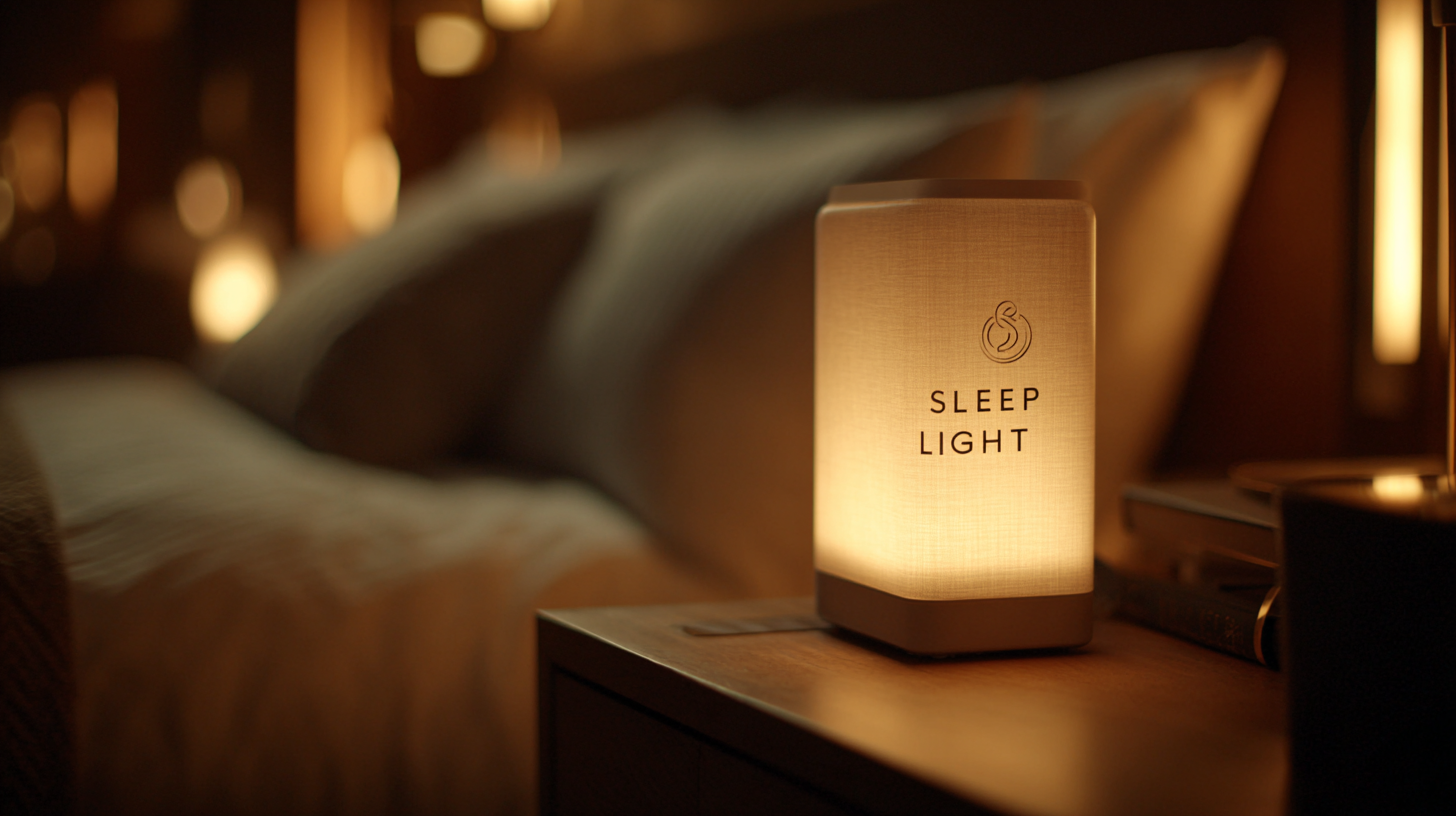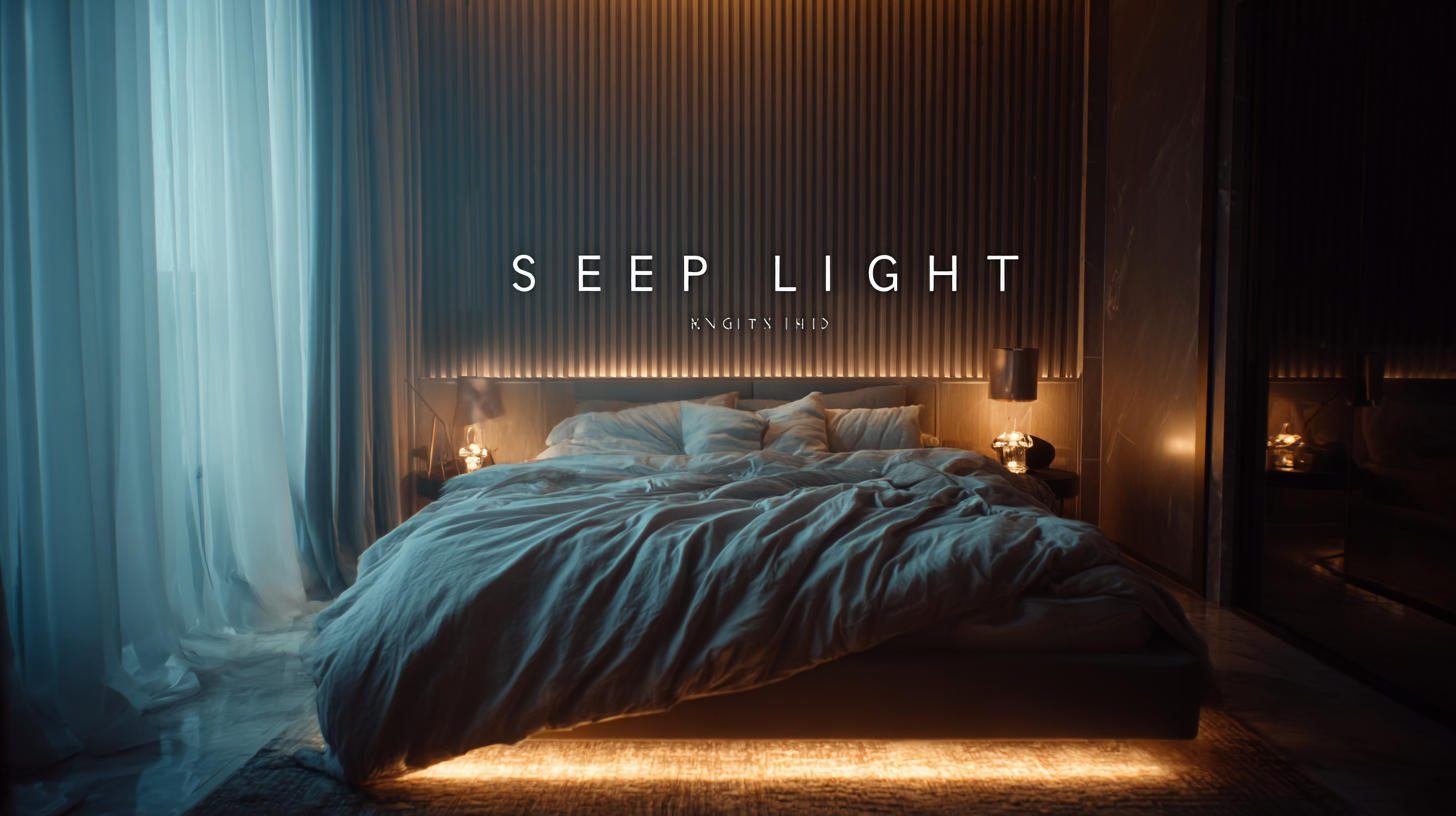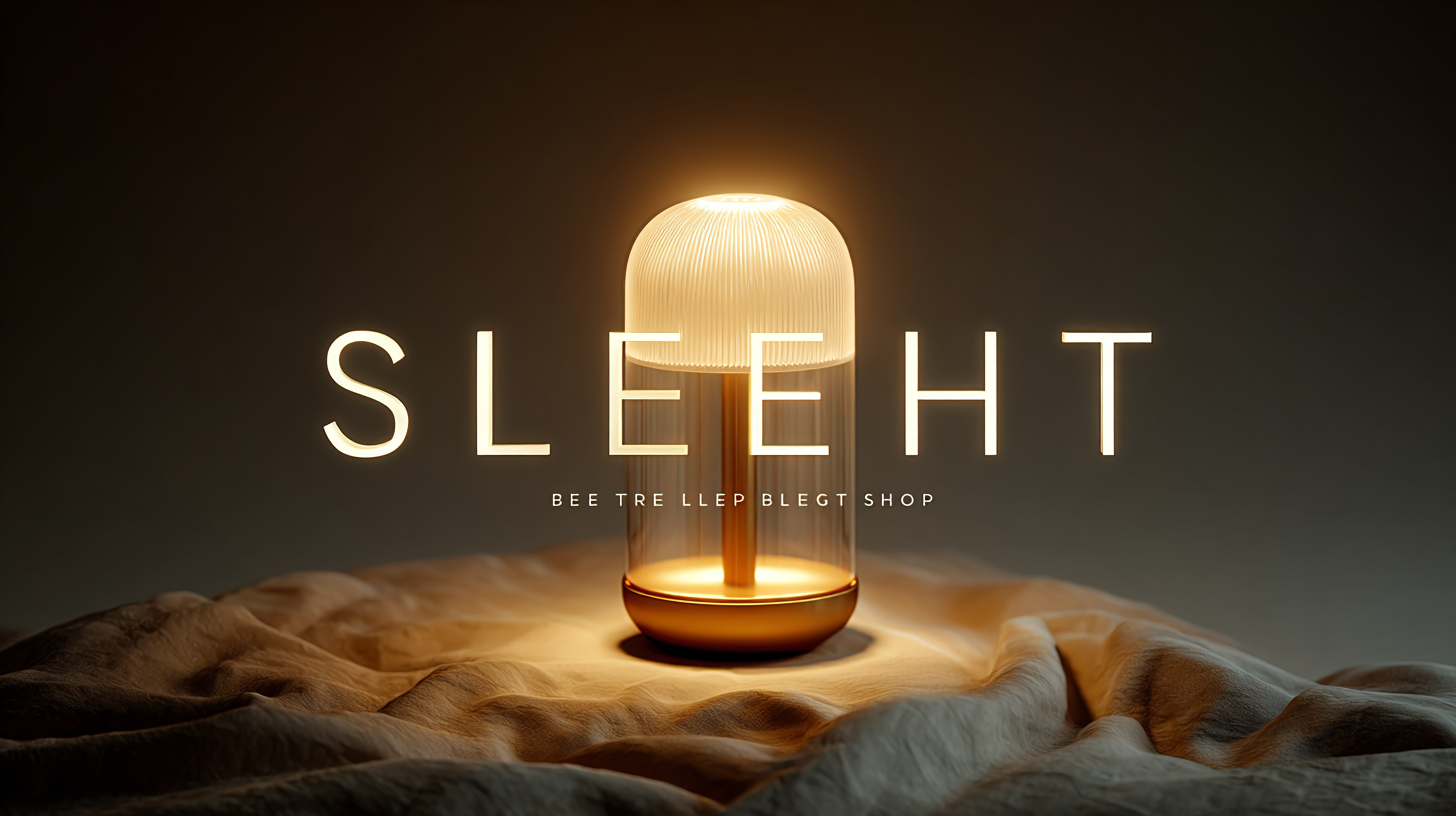Revolutionizing Rest with Best Sleep Light Solutions for Stress Relief in Hospitality Industry
In today's fast-paced hospitality industry, creating serene environments for guests can significantly enhance their overall experience and wellness. Recent studies indicate that approximately 70% of travelers report difficulty sleeping in hotels, often attributed to poor lighting conditions and stress. To address this, the implementation of effective sleep light solutions has emerged as a transformative strategy.

By mimicking natural light patterns and promoting relaxation, these innovative lighting systems can reduce stress levels, improve sleep quality, and ultimately lead to higher guest satisfaction rates. According to a report by the Global Wellness Institute, enhancing sleep quality not only boosts emotional well-being but also contributes to increased productivity, making the integration of sleep light technology a crucial consideration for hospitality businesses aiming to revolutionize their service offerings.
Innovative Sleep Light Technologies Transforming Hospitality Comfort
In the fast-paced hospitality industry, creating an environment conducive to restful sleep has become paramount. Innovative sleep light technologies are transforming the way hotels approach guest comfort, addressing a growing demand for improved relaxation solutions. According to a recent report by the Global Wellness Institute, nearly 70% of travelers cite sleep quality as a key factor influencing their overall satisfaction during their stay. The implementation of advanced sleep light systems has emerged as a vital strategy to enhance tranquil settings that promote restorative rest.

These technologies utilize circadian rhythm-aware lighting designs, which adjust the color temperature and intensity in accordance with the time of day. Studies from the University of Oxford have shown that exposure to blue light in the morning can improve mood and boost energy levels, while warmer light in the evening aids in relaxation and better sleep onset. By integrating these innovative solutions, hotels not only create a more comfortable atmosphere but also demonstrate a commitment to guest well-being, ultimately leading to higher guest retention rates and positive reviews. As the competition intensifies in the hospitality industry, investing in sleep light technologies is not just a luxury—it's a necessity for those aiming to revolutionize their guest experience.
Importance of Stress Relief through Enhanced Sleep Environments
In today’s fast-paced hospitality industry, providing guests with an environment conducive to relaxation and rejuvenation is paramount. The importance of stress relief through enhanced sleep environments cannot be overstated. Hotel rooms that prioritize sleep quality not only enhance the overall guest experience but also contribute to better health and well-being. By incorporating sleep light solutions, hotels can create a tranquil ambiance that encourages deep sleep, allowing guests to wake up refreshed and ready for the day.

Employing innovative sleep light technologies can significantly transform a hotel space. Soft, adjustable lighting that mimics natural light patterns helps regulate the body’s circadian rhythm, leading to improved sleep quality. Guests are more likely to enjoy their stay when they can unwind in a calm and soothing environment. Furthermore, these enhancements contribute to guest satisfaction and loyalty, driving positive reviews and repeat business. As the hospitality industry continues to evolve, prioritizing stress relief through superior sleep environments will be a game changer in attracting and retaining guests.
How Smart Lighting Solutions Elevate Guest Experiences in Hotels
In the competitive landscape of the hospitality industry, providing an exceptional guest experience is paramount. Smart lighting solutions are at the forefront of enhancing this experience, with studies indicating that appropriate lighting can improve guests' mood and well-being significantly. According to a recent report by the American Society of Interior Designers, over 70% of hotel guests express that lighting plays a crucial role in their overall satisfaction. Smart lights allow for personalized control over ambiance, which can be adjusted according to different times of day or guest preferences, creating a more inviting atmosphere that encourages relaxation and comfort.
Additionally, integrating smart lighting technology can lead to considerable operational efficiencies for hotels. A report by the International Energy Agency suggests that energy-efficient lighting can reduce energy consumption by up to 75%, leading to significant cost savings. With the rise of wellness tourism, hotels that invest in sleep light solutions are not only enhancing the guest experience but also positioning themselves as leaders in sustainability. By leveraging the capabilities of smart lighting, hotels can create soothing environments that contribute to stress relief, optimize energy use, and ultimately, elevate the overall quality of stay for their guests.
Trends in Sleep Science Shaping the Future of Hospitality Design
In the modern hospitality industry, the intersection of sleep science and design is becoming increasingly significant. As guests place a higher value on their sleep quality, hoteliers are turning to innovative design strategies that prioritize restful environments. Research shows that lighting plays a crucial role in regulating sleep cycles. By implementing sleep light solutions—such as circadian lighting systems that mimic natural daylight—hotels can create an atmosphere that promotes relaxation and deep sleep. This trend not only enhances the guest experience but also addresses common issues such as stress and fatigue, making it essential for those looking to differentiate their offerings in a competitive market.
Moreover, the integration of sleep science into hospitality design goes beyond just lighting. Room layouts, choice of materials, and even soundproofing techniques are all being reimagined to foster better sleep. For instance, soft furnishings that absorb sound and promote tranquility can alleviate the disruptions many guests experience during their stays. As hotels embrace these holistic approaches to design, they are not only enhancing comfort but also aligning themselves with the emerging wellness movement. This synergy between sleep science and hospitality design heralds a new era where guests can truly relax and rejuvenate, ensuring that their stay is not just memorable but restorative.
Integrating Sleep-Centric Design for Wellness-Focused Travel Destinations
In the ever-evolving hospitality industry, prioritizing guest wellness has become essential. Integrating sleep-centric design elements not only enhances the overall experience but also promotes relaxation and rejuvenation. By addressing factors such as lighting, sound, and space layout, hotels can create an atmosphere conducive to restful sleep. This trend is particularly important for wellness-focused travel destinations, where the aim is to provide guests with a sanctuary away from the stresses of daily life.
To implement sleep-friendly designs, consider using adjustable sleep lights that mimic natural daylight. These lights can help regulate guests’ circadian rhythms, encouraging them to fall asleep faster and wake up refreshed. Additionally, incorporating soundproof materials can significantly reduce noise disturbances, allowing for a peaceful environment. Essential oils and calming colors in room decor can further enhance tranquility, helping guests unwind and forget about their worries.
Another valuable tip is to provide furniture that supports relaxation, such as plush seating areas or hammocks. By reimagining common spaces and guest rooms with a focus on comfort, hospitality businesses can attract wellness-focused travelers seeking an enriching and restorative stay. Ultimately, by embracing sleep-centric design, the hospitality industry can revolutionize the way guests experience rest, keeping their well-being at the forefront.
